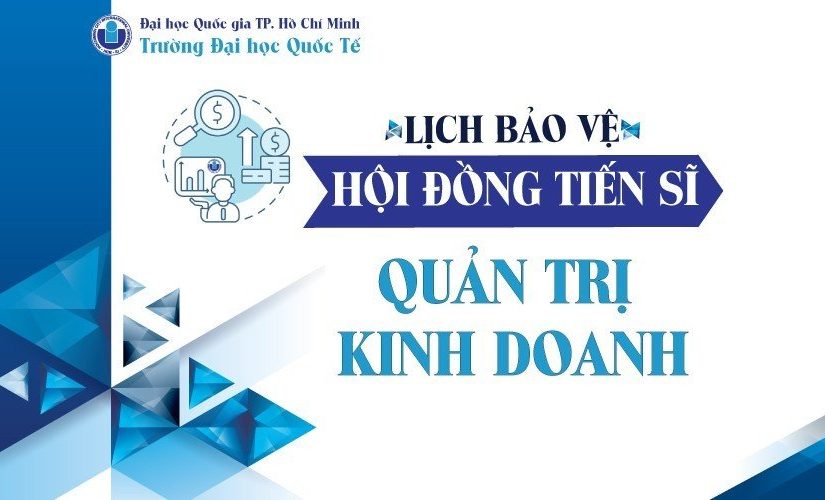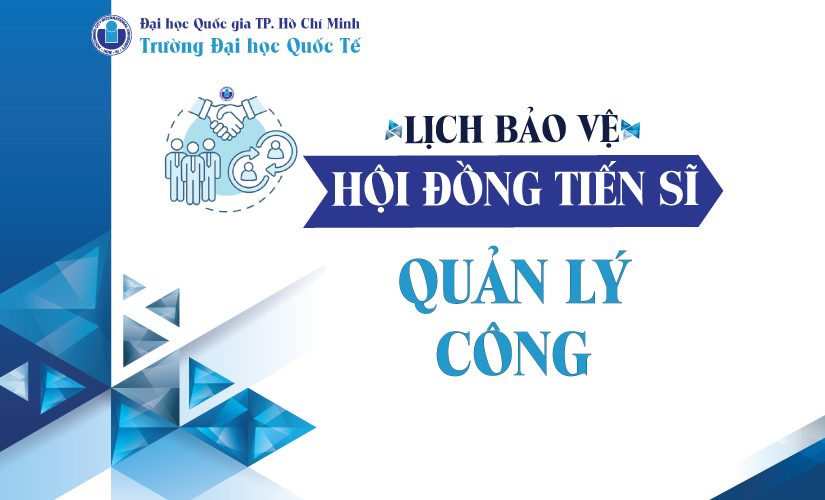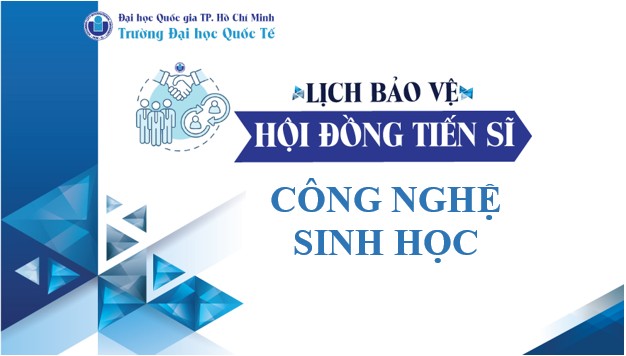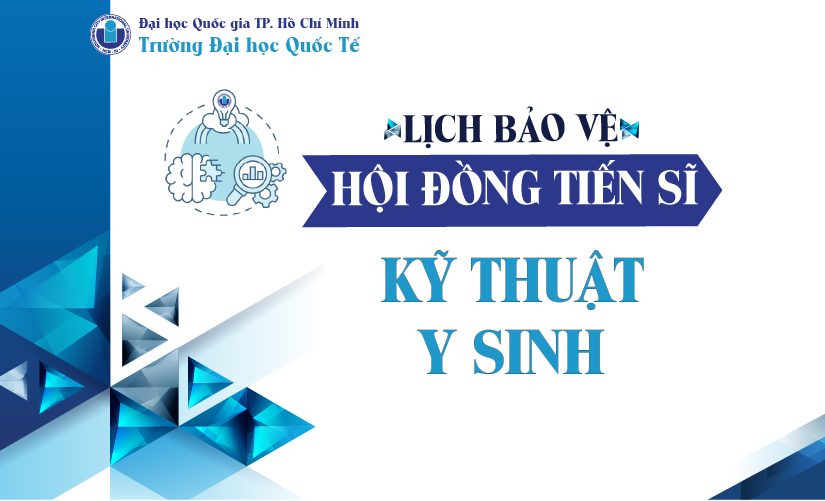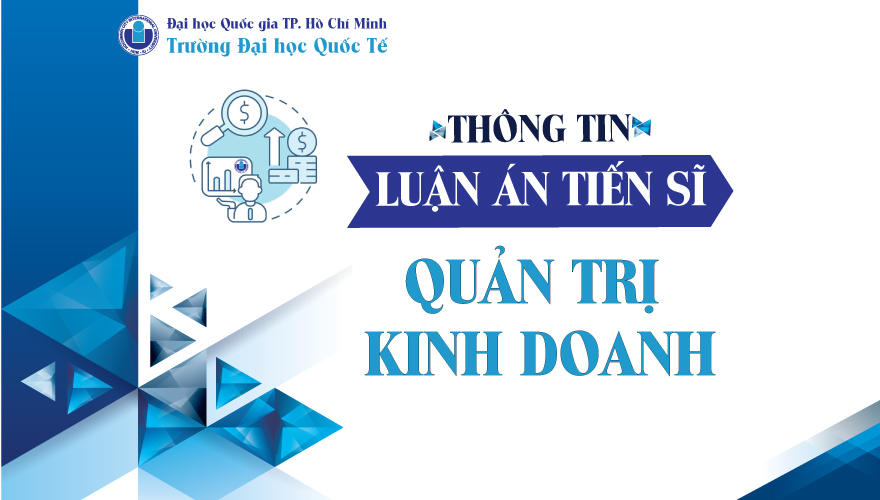
Thông tin luận án tiến sĩ Quản trị Kinh doanh – NCS. Nguyễn Thị Minh Phương
Tên đề tài: ALLIANCE MANAGEMENT PRACTICE FOR HIGHER TRUST, COMMITMENT, AND INTER-ORGANIZATIONAL RELATIONSHIP PERFORMANCE- A STUDY OF TRAVEL COMPANIES IN VIETNAM.
Ngành: Quản trị kinh doanh
Họ tên NCS: Nguyễn Thị Minh Phương
Mã số NCS: PBAIU19003
Người hướng dẫn: PGS.TS. Nguyễn Ngọc Duy Phương
Tính mới và giá trị khoa học:
The inter-organizational relationships (IRs) theory existed a long time ago and very famous in many fields such as societies, economics, policies and administration science (Weber, 1947), in health and welfare agencies (Phillips, 1960; Hage & Aiken,1971) in Midwest, in marketing field (Palmatier et al., 2007), in accounting field (Dekker, 2004), in Spain tourism clusters (Elche et al., 2018), in hospitality field (Medina-Munoz & García- Falcón, 2000). Many studies paid high attention to apply new method of IRs in business networks as a potential protector that may lead organizations to overcome the risks, problems, and uncertain environments caused by the COVID-19 pandemic, thereby the alliance relationships allowed their businesses to continue and develop (Al-Omoush et al., 2022; Gölgeci & Kuivalainen, 2020; Corrêa et al., 2021). According to Cummings (1991), a good relationship does not happen by itself, therefore, each stakeholder must be actively involved in activities or tasks in IRs to build a good exchange relationship. According to Gölgeci and Kuivalainen (2020), this adaptive behavior for the organizations supported a change and participate in IRs to gain knowledge, plans and ideas in alliance relationships, thus striving for growth and survival through new method of operation to overcome the effects of the COVID-19 pandemic through trust and commitment (Al-Omoush et al., 2022; Palmatier et al., 2007). The impacts of the COVID-19 pandemic produced many challenges for organizations in all industries, and the pandemic forced organizations to sense and respond flexibility and frequency of interaction to find new ways to survive (Al-Omoush et al., 2022; Meflinda et al., 2018), frequency of interaction describe the quality of the exchange relationships (Binder, P. A 2019; Saukko et al., 2020; Turker, 2014). Based on the changes in communication and coordination, the organizations can improve better business relationships by using advanced and supportive technology (e.i., MS.Team, Zoom software, automatic consulting Chatbots; customer relationship management-CRM; social media technologies) from their partners to achieve IORP (Al-Omoush et al., 2022; Gölgeci & Kuivalainen, 2020). Itani et al. (2020) examined how sales staff use customer relationship management and social media technologies affect buyer-seller information in exchange relationships, the findings reported that communication support competitive information collection, product information, and buyer information sharing. In addition, the organizations can utilize the availability of skills from their partners to learn appropriate technological processes to produce new products or launch new services (Ode & Ayavoo, 2020). Furthermore, Oliver, (1990) stated that the environmental uncertainty is the opportunity prompted managers to seek out inter-allied those administrators had alike qualifications to them, IRs expect the private companies were connected to other firms, but these companies keep their separate missions and try to cooperate in joint efforts. As Hodge et al. (1998) stated that an organization might form exchange relationships with other organizations to reduce uncertainty and thus gain greater control over the aspects of the macro-environment that are critical for the organization’s survival. Previous studies had found the antecedents of successful partnerships, including coordination, commitment, trust, quality communication, information sharing, and participation (Mohr & Spekman, 1994; Monczka et al., 1998; Medina-Muñoz & Garcıa-Falcón, 2000) they just explored direct impact on IRs. Furthermore, Palmatier et al. (2007) found commitment and trust positively affect IORP and were the critical mediating variables in IORP model (Yang et al., 2019; Ashnai et al., 2016). However, there exists research gaps in these areas.
First, González-Torres et al. (2021) conducted a qualitative approach to build a direct sales model to overcome epidemic outbreaks based on trust, commitment, and coordination evolution towards relationship management between hotel chains and tour operators in Spain. The symmetric trust and commitment will reduce the uncertainty resulting from opportunism and minimize the demand for extensive control procedures (Morgan & Hunt,1994), maximize relationship quality in B2B relationships (Pfajfar et al., 2022). Similarly, Elche et al. (2018) had contributed to explore the literature of IRs, they discovered the influence of relationships with “the core and peripheral partners in clustered firms,” but their study did not analyze the impacts of the relationships between variables. Many studies just explored direct impact on IRs and have not explore the indirect yet (Mohr & Spekman, 1994; Monczka et al., 1998; Medina-Muñoz & Garcıa-Falcón, 2000).
Notably, based on the need to expand our knowledge of potential constructs of IORP, Medina-Munoz and Garcia-Falcon (2000) suggested that for better understanding of successful IRs, further research should examine the effects of independent variables of flexibility and frequency of interaction on IR effectiveness. It lacked research to analyze the factors of AMP and IORP through trust and commitment (Al-Omoush et al., 2022) through trust and commitment. However, the factor of flexibility, frequency of interaction has not investigated the association yet. Based on previous study show what was not known about the relationship among factors of AMP and IORP through mediating trust and commitment, the first point is that based on the empirical studies have proved the IR success model was significant statistics, but there was a problem is that the scholars have not added the mediating variables to explore the relationship among these factors (Medina-Munoz & García-Falcón, 2000; Monczka et al., 1998; Mohr & Spekman, 1994).
Third, in a study by Uddin et al. (2020), the authors developed a synthesis co- ordination theory by combining supply network theory and TCT. The results showed that the hybrid relational context has a positive correlation with capabilities and methods and leads to efficiency in inter-organizational cost management; a weak point is that this study did not explore the indirect influences among these factors. Moreover, Yeh et al. (2020) suggested that inter-organizational trust did not have a direct or significant impact on IRs and failed to predict the relationship between trust and IRs; however, they found a positive impact of relationship trust on IRs through the mediation of stakeholders’ commitment factor. In addition, Ali et al. (2021) integrated international joint venture management practices based on TCT to understand the method that improved IORP. They found that trust, communication, and culture of organizations in exchange relationships had a positive effect on improving performance of collaboration. TCT is a lens of structural management practices, and the results also found that there were no positive effects among these structural management practices when they used TCT to explore performance of international joint venture management. Based on the previous studies discussed above, the results remain negative effects and non-significant, and another weak point is that these studies did not investigate the combined role of coordination, participation, frequency of interaction, flexibility, and commitment in structural management practices reducing opportunism and enhance the performance of collaboration (Ali et al., 2021). Based on the previous studies, their results are a springboard for our research on travel companies and their partners.
Fourth, most research in IRs have been carried out in developed countries, especially in the Western context (Yang, 2019; Ashnai, 2016; Morgan & Hunt, 1994; Pfajfar et al.,
2022), IRs is interesting and also necessary to validate the applicability of IRs in Spain by a study of González-Torres et al. (2021) conducted a qualitative approach to build a direct sales model to overcome epidemic outbreaks based on trust, commitment, and coordination evolution towards relationship management between hotel chains and tour operators in B2B. Hence, the theoretical framework of this research is expected to explain how well factors of AMP and IORP models developed in the Western fit the context of alliance relationships among travel companies and their partners in Vietnam, and to add to body of knowledge on these fields.
Finally, the development of tourism sectors and the entire industry contributes greatly to the socio-economic growth of Vietnam. However, no previous research has investigated the influences of alliance management practices on IORP among travel companies and their partners in Vietnam context. As the discussion above shows the necessity of this study, previous studies have been explored success of IRs in B2B relationships or dyadic relationships. However, the IRs research in tourism industry at the level of focal organization was limited in travel companies in Vietnam context, it was marked by barely any research to investigate the impact of AMP factors on higher trust, commitment, and IORP between travel companies and their suppliers. Although the attributes in exchange relationships drive to performance, including inter-organizational trust, commitment, coordination, communication, flexibility, participation, and frequency of interaction have been mentioned by many studies in developed countries (Mohr & Spekman, 1994; Medina-Muñoz & Garcıa-Falcón, 2000; Elche, D. et al., 2018; Morgan & Hunt, 1994; Pfajfar et al., 2022; Palmatier et al., 2007; Ashmai et al., 2016; Yang et al., 2019; González-Torres et al., 2021; Ali Shahzad et al., 2021; Uddin et al., 2020), the results were inconsistent due to mediating factors that various studies have not clearly explored both direct and indirect effects among these constructs. Therefore, further research needs to explore the relationship among these constructs in other phenomena to understand the connections of these factors in uncertainty environment in a specific context that have been found limitation. Hence, the IRs need more studies to advance research and understand the behaviour of members in IRs in the tourism field, besides that the study of IRs provide a greater understanding of how each factor of AMP directly and indirectly affect high trust, commitment, and IORP. To address the research gaps foregoing, this study aims to identify what factors of AMP affect IORP and conduct an empirical study to validate the proposed hypotheses by testing the direct and indirect effect relationship between factors of AMP, trust, commitment, and IORP toward the exchange relationship between travel companies and their partners context in Vietnam.
This research presents empirical findings for the connections between factors of AMP, trust, commitment, and IORP, and how these factors of AMP foster inter- organizational relationship performance in both direct and indirect influence of tourism industry in Vietnam. Based on the above evidence, practical implications and organizational developmental policies are recommended to assist tourism managers to improve their knowledge to build a strategy effectiveness to develop tourism sustainability, as well as building the relationship marketing and high inter-organizational performance of tourism firms.
Thông tin chi tiết luận án xem tại đây:
– Tóm tắt luận án – Tiếng Việt.
– Tóm tắt luận án – Tiếng Anh.

